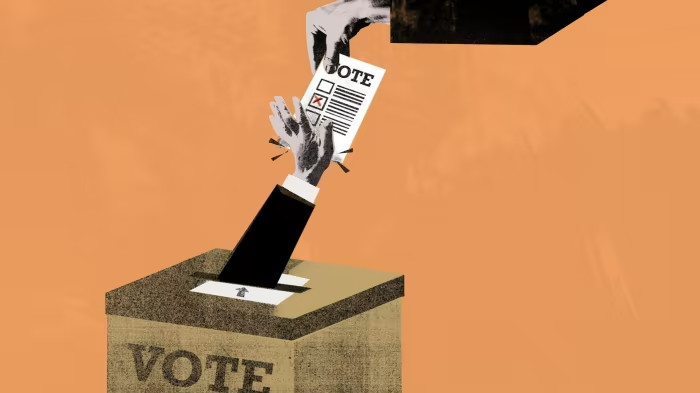Politics class: New election laws will be a defining test of Rishi Sunak’s integrity

Roula Khalaf, Editor of the FT, selects her favourite stories in this weekly newsletter.
This article picked by a teacher with suggested questions is part of the Financial Times free schools access programme. Details/registration here.
Specification:
AQA Component 3.1.2.1: Democracy and participation
Edexcel Component 1: Democracy: participation crisis
Background: what you need to know
This article links to the related debates on the fairness of the UK’s system of representative democracy and the extent to which there is a ‘crisis of political participation’. It discusses recent changes to electoral law, which from next month will require voters to present photo ID at the polling station.
The writer asks whether the change is necessary, since the problem of voter impersonation, which it purports to address, is of minor significance in the UK. The article also points out the danger that certain voters — notably younger people, the very old and members of minority groups — may be discouraged from voting.
It is worth returning to this story after the May local elections, to see whether there has indeed been an appreciable impact on voter participation.
Click to read the article below and then answer the questions:
New election laws will be a defining test of Rishi Sunak’s integrity
Question in the style of AQA Politics Paper 1
‘There is a crisis of democracy and participation in the UK.’ Analyse and evaluate this statement. [25 marks]
Question in the style of Edexcel Politics Paper 1
Evaluate the view that there is a crisis of democracy and participation in the UK.
You must consider this view and the alternative to this view in a balanced way. [30 marks]
TIP: The article offers a good starting point but remember to think more broadly about the notion of a ‘crisis of participation’. Other indicators such as membership of political parties and involvement in pressure group politics should be considered as part of a successful answer.
Graham Goodlad, Portsmouth High School
Comments